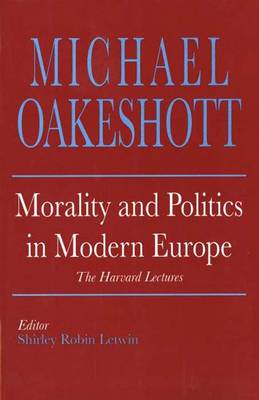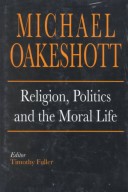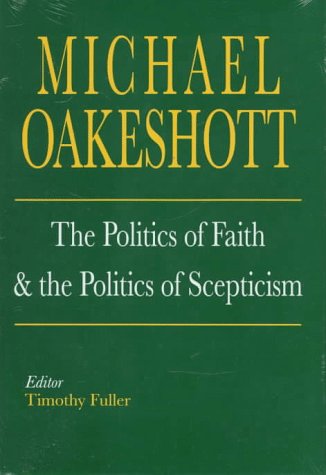Selected Writings of Michael Oakeshott
3 total works
When Michael Oakeshott died in 1990, he left much unpublished material, including fully elaborated essays and complete full-length manuscripts. This volume contains selected items from these works based on a series of eight lectures delivered in 1958.
Michael Oakeshott's lifelong interest in religion and its relation to politics is made explicit in this collection of essays. It comprises four important unpublished pieces, together with a further six which originally appeared in remote and inaccessible journals, and provides an illuminating complement to Oakeshott's best-known writings. Much of the collection emanates from his early career, and reveals not only his initial intellectual preoccupations, but the nature of his religious outlook, the moral convictions that governed the life he himself lived, and his sense of what it means to live 'religiously' in the world.
What the essays disclose is a view of a moral life without fixities, but with choices of conduct in accord with one's self-understanding. Faith lies not in resisting but exploring life's contingencies, seeking an imaginative response to the events that come one's way. Oakeshott's writing is persuasive and compelling, and the essays offer a calm and civil dissent from the dominant rationalism of our time.
In a substantial introduction, Timothy Fuller provides the first full explanation of Oakeshott's religious ideas, setting them within their philosophic context. He shows how, in these essays, Oakeshott elaborated the implications of 'Experience and its Modes', worked out his political theory as summarized in 'Rationalism in Politics', and gradually assembled his own philosophical account of the ideal that European civilization had made concrete in history - civil association under the rule of law - and to which he gave definitive expression in 'On Human Conduct'.
Michael Oakeshott was born in 1901 and educated at the Universities of Cambridge, Tubingen and Marburg. A fellow of Gonville & Caius College, Cambridge, he was appointed to the chair of Political Science at the London School of Economics in 1950. He died in 1990. His publications include 'Experience and its Modes' (1933), and edition of Hobbes's 'Leviathan' (1946), 'Rationalism in Politics' (1962), 'On Human Conduct' (1975) and 'The Voice of Liberal Learning' (1989).
Timothy Fuller was Dean of the College, Colorado College, and editor of 'The Voice of Liberal Learning: Michael Oakeshott on Education'.
What the essays disclose is a view of a moral life without fixities, but with choices of conduct in accord with one's self-understanding. Faith lies not in resisting but exploring life's contingencies, seeking an imaginative response to the events that come one's way. Oakeshott's writing is persuasive and compelling, and the essays offer a calm and civil dissent from the dominant rationalism of our time.
In a substantial introduction, Timothy Fuller provides the first full explanation of Oakeshott's religious ideas, setting them within their philosophic context. He shows how, in these essays, Oakeshott elaborated the implications of 'Experience and its Modes', worked out his political theory as summarized in 'Rationalism in Politics', and gradually assembled his own philosophical account of the ideal that European civilization had made concrete in history - civil association under the rule of law - and to which he gave definitive expression in 'On Human Conduct'.
Michael Oakeshott was born in 1901 and educated at the Universities of Cambridge, Tubingen and Marburg. A fellow of Gonville & Caius College, Cambridge, he was appointed to the chair of Political Science at the London School of Economics in 1950. He died in 1990. His publications include 'Experience and its Modes' (1933), and edition of Hobbes's 'Leviathan' (1946), 'Rationalism in Politics' (1962), 'On Human Conduct' (1975) and 'The Voice of Liberal Learning' (1989).
Timothy Fuller was Dean of the College, Colorado College, and editor of 'The Voice of Liberal Learning: Michael Oakeshott on Education'.
What should governments do? Arguing that while some political thinkers have thought it proper for humans to control as far as possible, and others have argued for a free approach to government, this text suggests the most desirable form of government lies somewhere between these interpretations.


